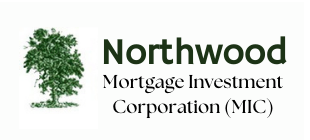An industrial mortgage, as the name suggests, is a mortgage received specifically for an industrial property. These kinds of properties can include manufacturing plants, factories, workshops, storage units, or warehouses. They are usually located in the area of a city or town specifically meant for industrial use.
There are many reasons for buying a building for industrial use. You may want to continue actively using it and take over the existing business, or you may wish to start your own. You may want to renovate the building for another use or as an investment to resell. Whatever your reasons for buying, you can apply for an industrial mortgage for the property.
Industrial mortgages actually fall under the category of commercial mortgages. A commercial mortgage is a mortgage on any kind of property that is meant to generate income. However, a commercial mortgage can have housing units in the building, while industrial mortgages cannot.
Buying an industrial property is much the same as buying any other property. A good place to begin is finding a real estate agent who specializes in industrial properties. The mortgage application itself is where the process differs from buying a residential property.
In addition to financial records, credit rating, and any other information required by the lender, you will be asked to provide documents related to the building, and business. These can include business plans, environmental reports, and, if you’ve run a business before, the history of that business. All of these factors will affect your success when it comes to being approved for an industrial mortgage.
Overall, with a few exceptions, the process is the same as applying for a mortgage on a residential property. Once you receive your mortgage offer on an industrial property, you can go ahead and go over it with your real estate lawyer. Once the contracts are drawn up and approved, you can proceed with paying your deposit and completing the purchase.
Because of the nature of industrial properties, there may be additional closing costs associated with the mortgage like environmental impact reports. If this is a concern, make sure you understand exactly what these closing costs will be before going ahead with the purchase.
With an industrial mortgage, you can really benefit from using a mortgage broker in order to find the best possible mortgage rates. Like your real estate agent, you should look out for a mortgage broker who is experienced when it comes to navigating the ins and outs of industrial mortgages and properties. Contact Northwood Mortgage today to set up an appointment with one of our industrial mortgage experts!






































